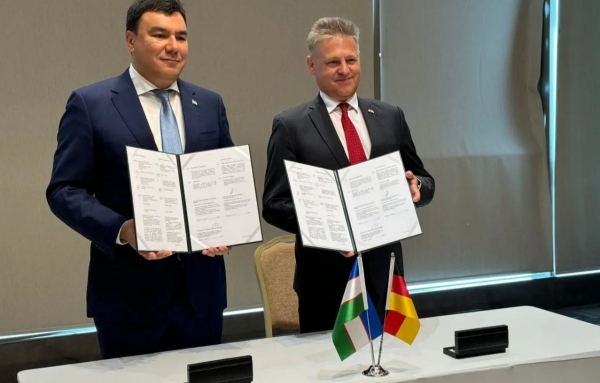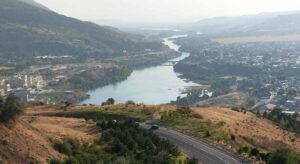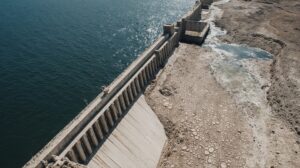Uzbekistan and Germany have formalized two new projects to support Uzbekistan’s transition to a climate-resilient economy. The agreements were signed by Uzbekistan’s Minister of Ecology, Aziz Abdukhakimov, and Joachim Fritz, Head of the Deutsche Gesellschaft für Internationale Zusammenarbeit (GIZ) Representative Office in Uzbekistan, during a bilateral meeting held in Samarkand.

The first agreement concerns the “Policy Dialogue and Knowledge Management on Climate Protection Strategies” (DIAPOL-CE) project, which will run from February 2024 to June 2025. This initiative focuses on aiding partner countries in crafting long-term scenarios and strategies to foster a sustainable and environmentally friendly economy.
In Uzbekistan, the project will facilitate a climate risk analysis of the Sudochye Lake system. The analysis will assess the potential adverse impacts of climate change on protected areas and wetlands.
Key activities under the DIAPOL-CE project include:
- Developing a national strategy for the conservation and sustainable management of wetlands.
- Creating a concept to promote eco-tourism to attract local, national, and international visitors.
- Enhancing the Sudochye Lake System’s capacity to manage climate risks affecting wetlands.
The second agreement involves the “Green Central Asia Phase II” project, which aims to bolster cross-border climate change cooperation within Central Asia. This project will implement a Regional Program for Adaptation and Mitigation of Climate Change, building on the framework established in the first phase of the project.
Key elements of the Green Central Asia Phase II project include:
- Organizing dialogue meetings and providing expert support through 2028.
- Updating the regional climate action plan to reduce emissions and adapt to climate impacts (NDC).
- Developing documents such as the Joint Central Asian Political Declaration of Intent regarding NDC obligations, a methodology for assessing vulnerability to climate change, and a training module on climate adaptation with a gender perspective.
Earlier, President Shavkat Mirziyoyev of Uzbekistan and German Chancellor Olaf Scholz established a Strategic Program for Industrial and Technological Partnership. The program targets green energy, critical mineral resources, and infrastructure projects. German companies will help explore and process Uzbekistan’s critical minerals, boosting production and exports to international markets.
Key agreements from their discussions include German involvement in exploring and processing Uzbekistan’s critical minerals, aimed at boosting production and exports. The nations will also collaborate on green energy, including green hydrogen, and in sectors like machine engineering and pharmaceuticals.
Plans are also in place to modernize Uzbekistan’s energy, transportation, communication, municipal, and tourism infrastructure, along with privatizing industrial and service enterprises and advancing projects in healthcare, education, and environmental protection.




